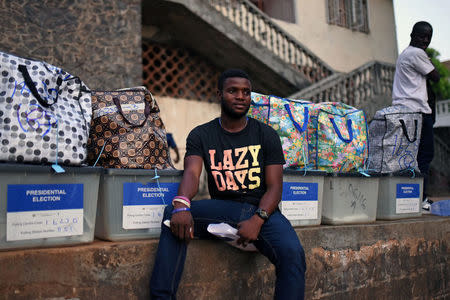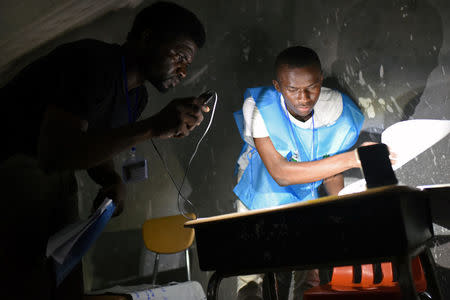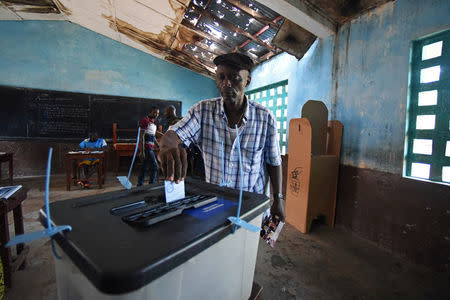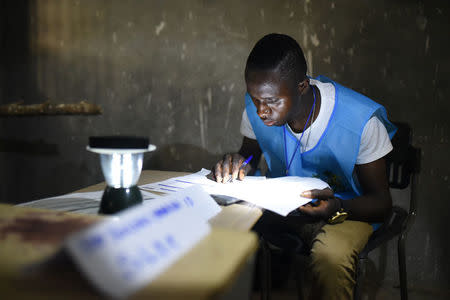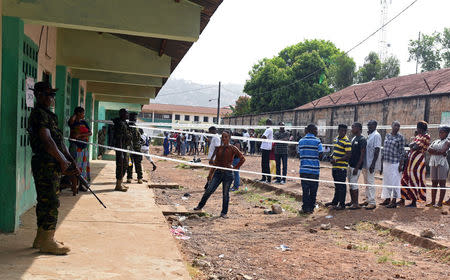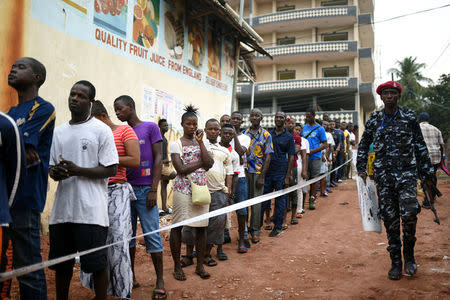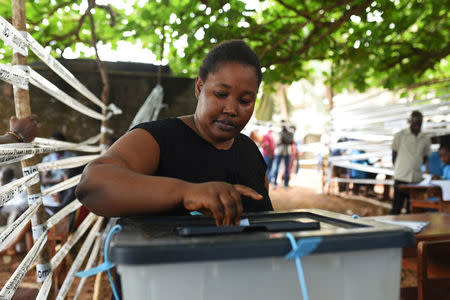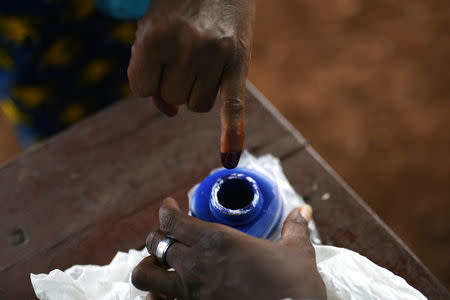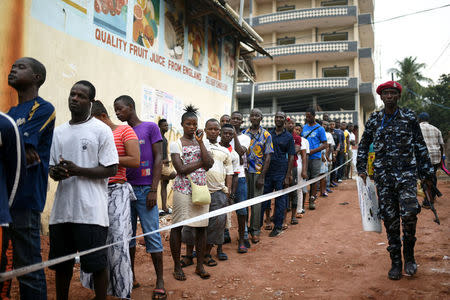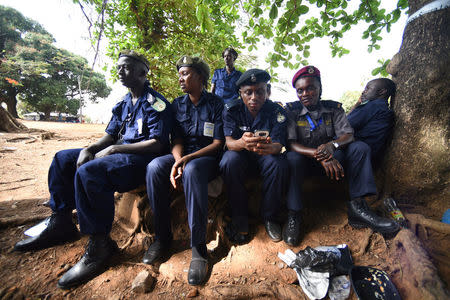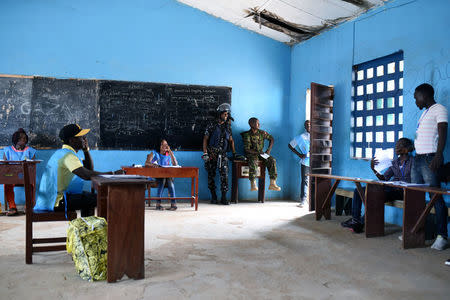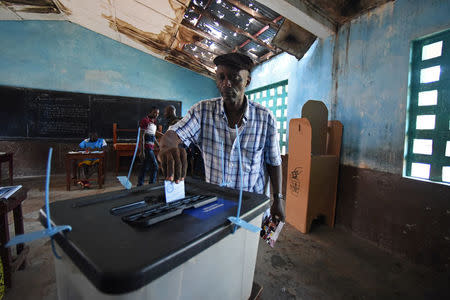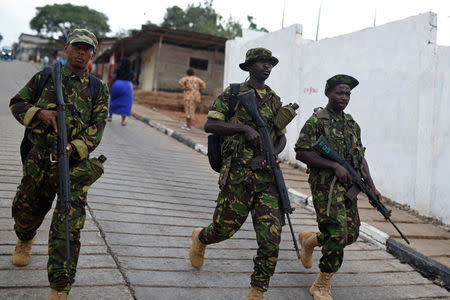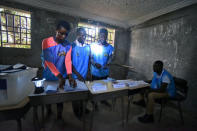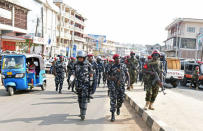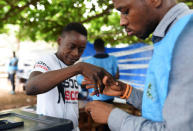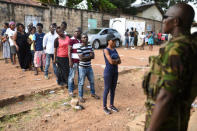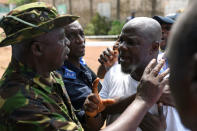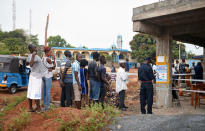Sierra Leone heads to the polls to seek successor to Koroma
By Umaru Fofana and and Christo Johnson FREETOWN (Reuters) - Sierra Leone voted on Saturday in a poll delayed by fraud allegations to choose a successor to President Ernest Bai Koroma who leaves a country struggling after the Ebola epidemic and a commodity price crash. The face-off between opposition leader Julius Maada Bio and ruling party standard-bearer Samura Kamara was supposed to take place on Tuesday but was rescheduled after a complaint about ballot tampering in the first round of voting this month from a member of Kamara's All People's Congress. Neither is a clear front runner after a first round that Maada Bio narrowly won with 43.3 percent of the votes versus 42.7 for Kamara, short of the 50 percent needed for outright victory. Counting had begun on Saturday evening and the elections commission said a result would be announced in the coming days. Whoever succeeds Koroma, who is stepping aside after his maximum two five-year terms in office, faces an uphill struggle to overturn years of hardship. A slump in the price of its commodity exports since 2015 and the Ebola crisis in 2014 and 2015 crippled the economy, which shrank by a fifth in 2015. "I want a better country, I want development for my country, so today I come to cast my vote for a leader who can develop this country," said Mohamed Kamara after casting his vote at a polling station in western Freetown. Voting was completed on a hot and humid day in mostly peaceful conditions though there were clashes between supporters in at least one polling station, according to witnesses. On the streets of Lumley in western Freetown, police opened fire during a violent dispute. A Reuters witness said no one was killed. Many voters complained that a heavy police presence inside polling stations had deterred people from casting their ballot. Staff at two polling stations said turnout was lower than in the first round. Many were forced to walk to their nearest voting station because of a driving ban imposed on election day for security reasons. "There is low turnout in different parts of the country because of the huge presence of security forces," Julius Maada Bio said after voting in Freetown. President Koroma also noted the low turnout when he spoke in Freetown, and urged people to head to their polling stations. Concern about policing comes after the National Electoral Commission last week said that police had tried to intimidate staff in the run-up to the election. Speaking to the media, army spokesman Major Paow Kagbo said the military personnel were there to ensure the election was "free and fair". Politics in the West African country of over seven million people has been dominated by two parties: the ruling All People's Congress, now fielding ex-foreign minister Samura Kamara, and the Sierra Leone People's Party behind Julius Maada Bio, who briefly ruled as head of a military junta in 1996. The generally peaceful nature of the election, and the fact Koroma is stepping down while some other African presidents seek to extend their mandates, is seen as a positive sign for Sierra Leone that was ripped apart by a 1990s civil war. (Additional reporting by Christo Johnson; Writing by Edward McAllister; Editing by Stephen Powell)


